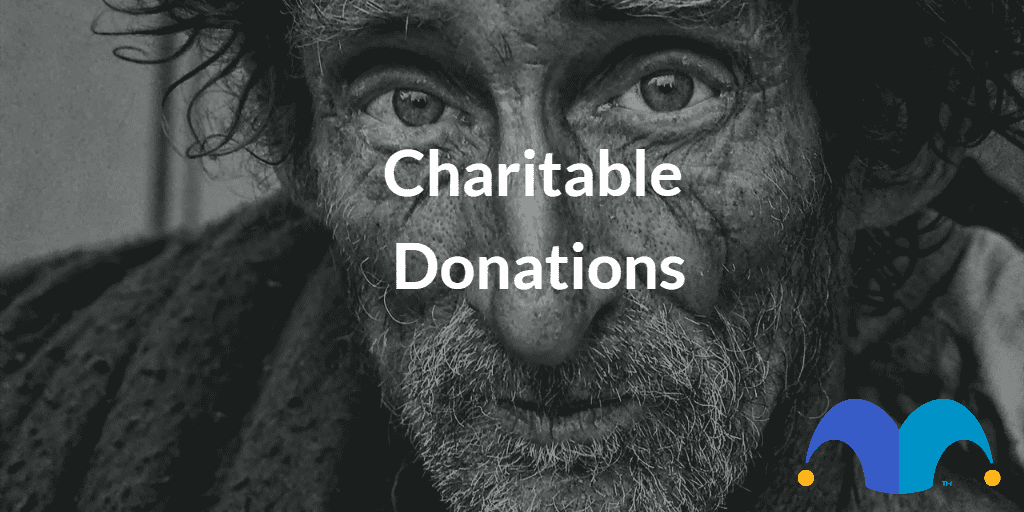Donating to charity benefits both the giver and the good cause. Do you know how much of your income goes to charity? Why take a look at why you should track charitable donations and keep a record of your philanthropy.
Why keep a record of charitable donations?
Donations to charities are tax-deductible. Not only is your money going to a good cause, but you can also get at least some of the money back.
When your tax return is due, it’s sometimes difficult to remember how much you have donated and when. Tracking charitable donations throughout the year prevents a last-minute search for evidence. It also allows you to keep on top of how much you are spending on donations.
You can claim tax relief on charitable donations through a Self-Assessment tax return, or by contacting HMRC and requesting a change in your tax code.
How can you track charitable donations?
For each donation, you need to record the date, the name of the charity or organisation, and the amount of the donation. Also note how the donation was made, for example cash, cheque, etc.
Depending on your circumstances, and the frequency of donations, there are several ways to track charitable donations.
- If you already use spreadsheets, like Microsoft Excel or Google Sheets, it makes sense to create one for charitable donations.
- Business accounting software like QuickBooks enables the self-employed to track charitable donations alongside other expenses.
- If you want to record your charitable donations a more traditional way, you can just stick with a notebook and pen.
Regular donations will appear on your bank statement and should be easy to add up over a year.
If you are claiming tax relief, it’s important to keep receipts, letters of acknowledgement, and other evidence where possible. Ideally, scan receipts and other paper evidence to keep in an easily accessible folder on your computer. This makes sure that everything is tidy and in one place.
Can you track charitable giving on PAYE?
If you are on PAYE, one way to make donations before tax is through Payroll Giving. A regular amount is taken from your salary before it arrives in your account. Payroll Giving manages both the donation and the tax relief.
Using a budgeting app like Money Dashboard can help to track charitable donations within a balanced spending plan each month.
There will always be occasions for spontaneous giving, but charities are grateful to know that regular donations are there, so they can plan ahead.
If you are a high earner and pay tax at 40%, be sure to reclaim tax on donations even if you’ve ticked the gift aid box. Gift Aid only covers 25% of your tax deduction, so you can claim back some extra tax from HMRC.
How do you track charitable donations if you’re self-employed?
Making regular donations is more tricky when you are self-employed and your income is unpredictable. Nevertheless, knowing how to track charitable donations can save you money on your tax bill.
A good way to organise charitable donations is to create a budget for charitable giving at the beginning of the year. This ensures that you know how much you intend to donate.
Another strategy is to donate a percentage of profit. You could put money aside, perhaps in a savings account, until you are ready to donate. That way you can track your donations in advance, as well as retrospectively.
What about other types of donations?
If your company donates equipment, such as computers or vehicles, this is also tax-deductible. The resale value of the items should be recorded.
Trading stock, land and shares in another company can also be donated to charity. Government rules about how to track these different types of charitable donations are complicated, so it is a good idea to get specific advice about large donations and the required paperwork.
What if you give to charity in the form of time?
Many freelancers give to good causes by providing their skill and time. It is unclear whether this in itself is tax-deductible. However, one solution is to charge for your services, then make a cash donation back for that amount.
Always keep a record of work carried out for free and provide a voided invoice so that the value of the work is clear.
Maybe you can only donate through volunteering. This too should be recorded, as it can be proof of experience when applying for a job.
Are there apps for tracking charitable donations?
There are many apps to choose from that give directly from your phone. These apps keep track of how much you have raised. An example is ShareTheMeal, an app aiming to help tackle world hunger.
